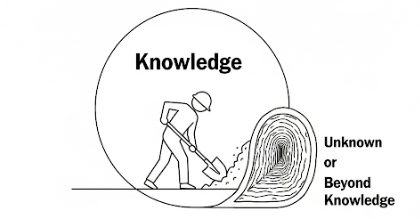Our brains and bodies move per energy state:
One energy state consists of:
-
Breathing
-
Thought
-
Feeling
-
Heartbeat
-
Etc.
All at the same time! We move per state. For a body, this is hard to explain since this happens simultaneously. Everything in your body occurs at once, including input and output (things that change).
What’s Your Approach to Self-Talk?
For years, I made this mistake: my self-talk sounded something like this (I’m into fitness):
-
Working out is important.
-
I want to be in good shape.
-
My eating should be clean.
-
Yada yada…
What I didn’t realize was that I was telling myself this all day long. And what happens then is a mistake in logic:
“Okay, so that means that every minute I’m not working out, or doing something productive, is a lost minute.”
At first, I tried to counter this with, “I need rest too.” But that didn’t help.
So I came up with a rule: I gave myself a time slot. I can only use that kind of self-talk from 8–10 a.m. (my training hours). The rest of the day, I can’t use that specific self-talk.
Now, the rest of my day feels much more peaceful and sweet.
How do you guys do this?
Waves
One of the hardest things to spot in the quest for new knowledge is that you reach certain tipping points.
Let me take psychiatric diseases as an example. I think it’s fair to say that nobody really knows how they work. We don’t really know how a brain works; we don’t really know the relationships with the body and the environment. If we truly understood, we would be able to cure them.
In a few hundred years, something like this is probably going to happen:
-
Every depression (for example) is unique in itself and also has a different cause.
-
We rule out psychiatric diseases in general because all our brains are too different anyway. Maybe you have to label everyone with their own psychiatric disease.
-
Disorders and atypical neurological brain types were only correct diagnoses on a surface level. They pointed in the direction of underlying suffering, but they are not things that truly exist.
My point is this: don’t overly attach yourself to a psychiatric label just because you were born here and now. That doesn’t mean you don’t have problems, but there will be a time when we look at every psychiatric disease as a unique event in somebody’s unique life.
Hey jij daar
Er is nog nooit iemand geweest die precies zo naar de wereld heeft gekeken als jij.
Pas op voor mensen die willen dat iedereen hetzelfde naar de wereld kijkt.
Niet iedereen heeft een ego.
Zelfs als je denkt dat je raar bent, zit daar toch vaak iets leuks in—
iets wat jou jou maakt.
Hey, you there
There has never been anyone who looked at the world exactly the way you do.
Beware of people who want everyone to see the world the same way.
Not everyone has an ego.
Even when you think you’re weird, there’s often something beautiful in that—
something that makes you you.
Parallel Between Consciousness and Quantum Physics
Both don’t work well in theory. They are “do things.”
The reason is because we are at the edge of knowledge.
If you see knowledge as a circle, we are literally digging our way out of that circle. When you are digging, you are trying, but you can’t explain it yet. The explanation comes after the digging.
Consciousness is like that too. Here’s a list of things I tried to understand consciousness:
-
Wrote down all my thoughts
-
Tried to feel all my feelings in the specific body part
-
Tried to “pull” thoughts mechanically
-
Attempted to operate my brain from outside (as if squeezing electricity in the bowl in the middle, so to speak)
-
Distanced myself from my brain, and then over-identified with it
-
Tried religion
-
Tried Buddhism
-
Paced my thoughts through moments of silence
-
Tried to enter as many energetic states as possible (nirvana, psychosis, OCD, etc.)
- "If your body is a jacket, how does it fit?"
And this is the beauty: at one point, you start to realize that what you are doing actually says a lot about you as a person.
I have experienced things in this universe that were of indescribable beauty. I have seen things I doubt many people have seen. I saw the universe completely differently, as if someone had put a new pair of glasses on me.
It’s a little bit like gravity: it was already there, but it’s still beautiful when someone points out nature’s elegance.
Point is this: when you are digging, you don’t know where you’re digging, if that makes sense. At the point of digging, you can’t explain what you’ve found, because you haven’t found it yet. But afterwards, you realize you did. It’s like working out: you think you’re not making progress, and then afterwards you suddenly realize that you’ve become better.
